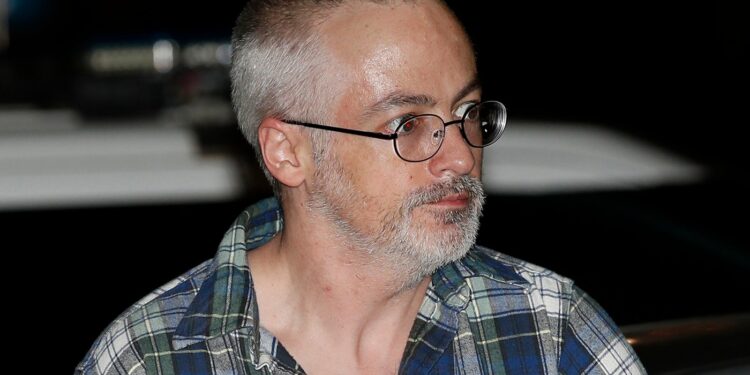
An Illinois appeals court on Friday overturned the murder conviction of a former Northwestern University professor who was convicted in the gruesome killing of his boyfriend, ruling that a Cook County judge unlawfully barred him access to his attorney during the trial.
Wyndham Lathem, a microbiologist who was fired by the university, in 2022 was sentenced to 53 years in prison in the 2017 slaying of Trenton Cornell, Lathem’s 26-year-old boyfriend, a punishment that Judge Charles Burns at the time called an “extreme sentence” but for an “extreme crime.”
Lathem and his co-defendant Andrew Warren stabbed Cornell 78 times in an act of violence that drew international attention and happened, prosecutors said during an early court appearance, because of a sexual fantasy shared by Lathem and Warren.
But the appellate court justices ruled in a 3-0 opinion that they had “no choice but to reverse” because Burns, the trial judge, denied Lathem access to his attorneys during an overnight recess. The case will now be sent back to the trial court.
The decision was reached by Justices Sharon Johnson, David Navarro and Mary Mikva.
“As heinous as murder is, these rights are crucial to the effective administration of justice,” the opinion said.
The violation, according to the appellate court, happened during the October 2021 trial, at which Lathem testified in his own defense.
After prosecutors finished questioning Lathem, but before his own attorneys could take their turn questioning him on the stand, the trial broke for the day, sending jurors home for the evening, according to the opinion. Burns, then, over the attorneys’ objection, ordered them not to have contact with him about his testimony or his case overall.
“Your Honor, just — I don’t want to belabor the point but besides what the court ordered for us not to talk to (defendant) about there are many other matters in the case obviously that we would want to talk to him about including other witnesses and closing arguments and a bunch of things you can talk to your client about while you are home for the evening,” his attorney told the judge, according to the opinion.
Generally, orders from judges barring contact while a witness is in the middle of testimony is to ensure attorneys can’t coach witnesses on what to say, but the appellate justices ruled that any restriction for a defendant speaking to their attorney should be reserved for “exigent and unusual circumstances.”
“(The) defendant’s right to unrestricted access must prevail over any fears of coaching, which should be addressed through exposure on cross-examination or through scheduling,” the opinion said.
Originally Published:







